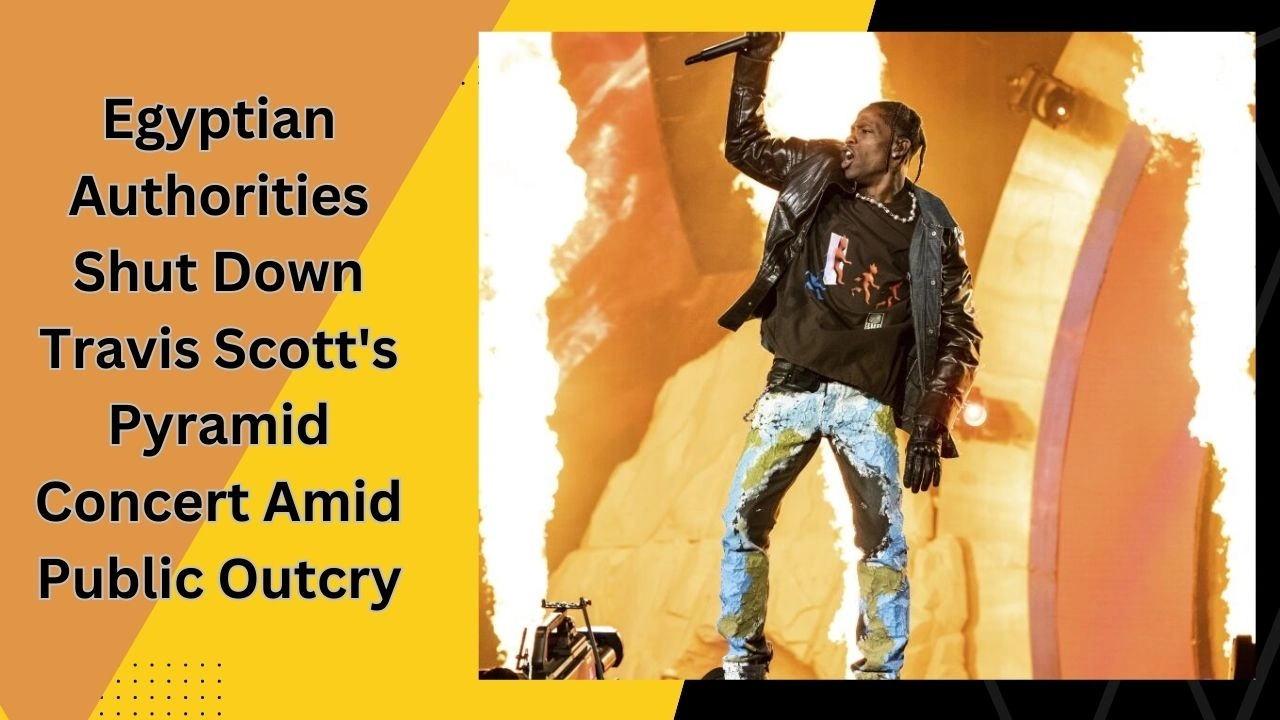Travis Scott: The Egyptian Musicians Syndicate has canceled a concert by US rapper Travis Scott near the Giza pyramids following an internet campaign against the hip-hop heavyweight.
International music performers frequently perform near the capital, Cairo, at the bottom of Egypt’s iconic pyramids, and the powerful musicians union rarely protests such events.
However, in recent years, it has led a campaign against inappropriate musical styles in Egypt, with rap being a common target.
Egypt has also become more hostile to what it sees as a “rewriting” of its history, criticizing African-American movements that claim cultural kinship with the ancient Egyptian pharaohs.
Scott’s concert would “go against our traditions,” according to the artists’ syndicate, which oversees all aspects connected to live or recorded music in the Arab world’s most populous nation.
The union stated that it does not intervene in musical performances as long as they “do not undermine the Egyptian people’s ancestral customs and traditions.”
After examining social media content and “the artist’s positions, the syndicate found images and documented information on the strange rituals he practices, which go against our traditions,” the statement said.
However, clarify which “rituals” the union assigns to the hip-hop heavyweight, who is now on tour worldwide.
Prior to the relocation, social media users initiated a campaign to cancel Travis Scott‘s concert, citing the American rapper’s Afrocentrism, which emphasizes the importance of Black Africans in shaping humanity.
Supporters of the movement say that racist academic traditions passed down from Europe have minimized the importance of Black Africans in world history.
The cancellation of Travis Scott‘s Egypt concert follows some Egyptians’ outrage over the release of a Netflix docudrama about Cleopatra, which they see as cultural appropriation and a glossing over of the presence of non-Black Egyptians in ancient Egypt, portrayed by a Black actress.
Egypt canceled a show by American comedian Kevin Hart in February after a social media campaign disseminated some of his previous comments. Critics accused him of distorting history and depriving Arabs of their right to the country’s ancient past by claiming that Egypt’s early kings were black.

